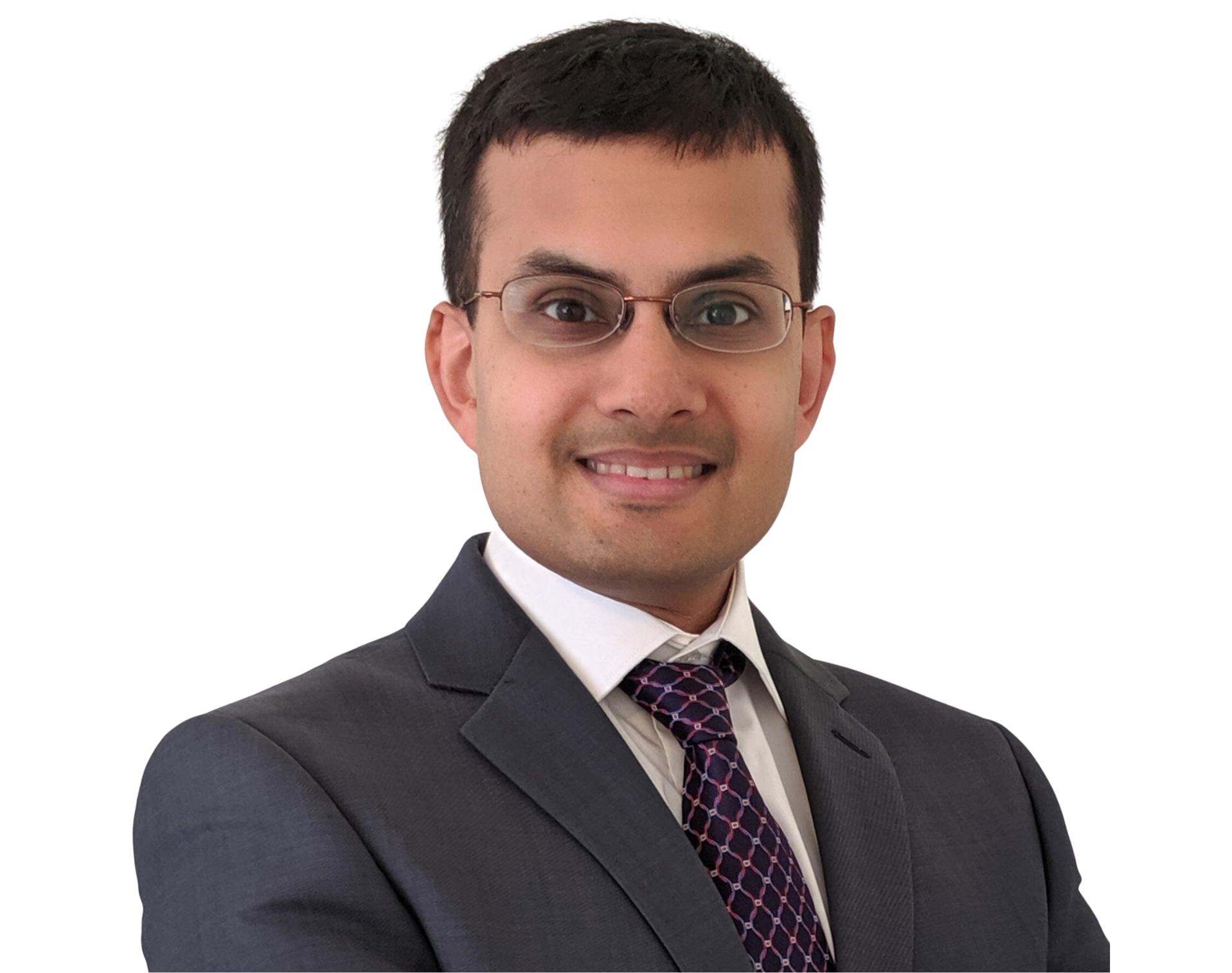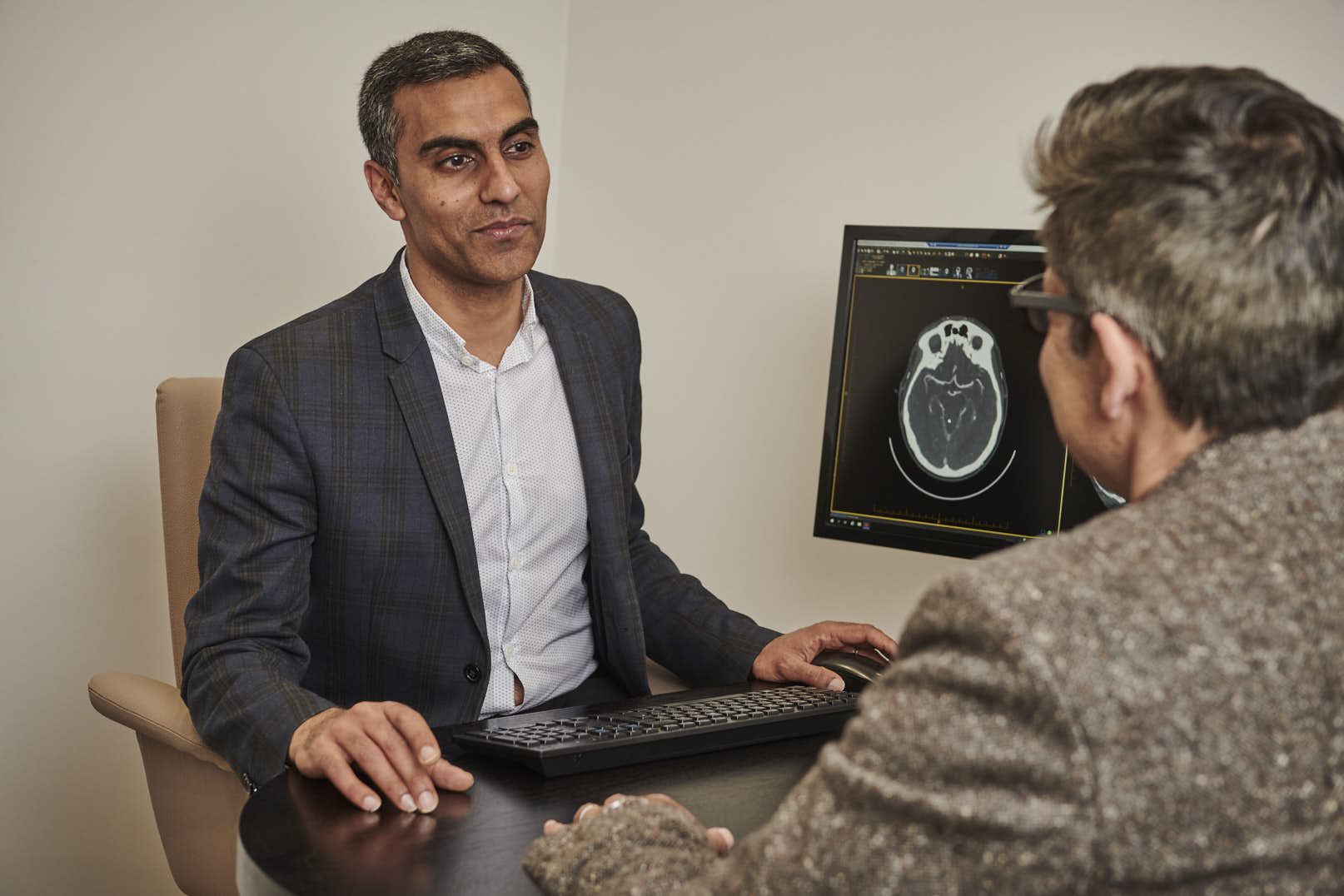
Dr Krishna Chinthapalli
Specialist expertise: Neurology, Epilepsy, Headache, Tremors, Multiple Sclerosis.
Headaches are extremely common, affecting over half of the world’s population. Many people have suffered from mild tension-type headaches and can manage these themselves, but there are times when seeking professional help from a neurologist becomes important. This article explores the signs that indicate it's time to see a neurologist for your headaches and the potential treatment options available.

Headaches are classified as any type of pain affecting the head, including the upper face and the top of the neck. There are many different types, which are divided into primary (those with a normal MRI brain scan and no underlying disease) and secondary (those that are due to a structural abnormality that may be seen on an MRI scan or due to another illness, such as high blood pressure).
Primary headaches are the most common and include tension-type headaches and migraines. Tension-type headaches (also called tension headaches) usually cause a mild, dull, aching sensation around the head.
Migraines, on the other hand, present with more intense throbbing pain, often with nausea, vomiting, and sensitivity to light and sound. Some people have an aura with migraine, which is usually a visual disturbance of some kind, lasting about 15-30 minutes.
Here are some signs that a neurologist consultation might be necessary:
Frequent or severe headaches: If you experience headaches more than twice a week or the pain is severe and disrupts your daily activities, a neurologist can help diagnose the underlying cause and recommend appropriate treatment.
Headaches that worsen over time: Headaches that progressively worsen in intensity or frequency require further investigation.
Headaches accompanied by neurological symptoms: This includes symptoms like vision changes, slurred speech, numbness, weakness, or fever. These may indicate a more serious condition.
New onset headaches after age 50: New headaches developing later in life can be a cause for concern and deserve a neurological evaluation.
Headaches following a head injury: Head trauma can lead to post-traumatic headaches, which require proper diagnosis and management.
Neurologists can offer a variety of treatment options for headaches and migraines, depending on the underlying cause and severity. Treatment approaches may include:
Preventative medications: These medications are taken regularly to decrease the frequency and severity of headaches.
Acute medications: Used during a headache attack to relieve the pain and associated symptoms.
Lifestyle modifications: Recommended adjustments like stress management techniques, sleep hygiene practices, and dietary changes can significantly improve headache management.
Injection Treatments: Botox or greater occipital nerve (GON) injections are known to be effective for headache treatment.
Consulting a neurologist offers several advantages:
Accurate diagnosis: With a thorough evaluation, a neurology specialist such as those at OneWelbeck can pinpoint the exact cause of your headaches, leading to a targeted and tailored treatment plan.
Effective treatment: Neurologists have extensive training and access to various treatment options, increasing the chances of finding relief from your headaches.
Headaches and migraines can be debilitating, but there's no need to suffer in silence. If you experience any of the signs mentioned above, consulting a neurologist can be a crucial step toward finding effective treatment and living a headache-free life.
Headache treatment at OneWelbeck
If you are suffering from frequent or extreme headaches or your headaches are accompanied by other symptoms, our specialists at OneWelbeck can help. At OneWelbeck Neurology we use the latest diagnostics to assess and treat a wide range of neurological issues. If you would like to see a neurologist, get in touch with us today.
Dr Krishna Chinthapalli graduated in Medicine from Imperial College. He is a Consultant Neurologist here at OneWelbeck Neurology, and at Wexham Park Hospital and the National Hospital, Queen Square. He is also an Honorary Senior Clinical Lecturer at Brunel University. He sees people with all neurological conditions and performs injection treatments for headaches.